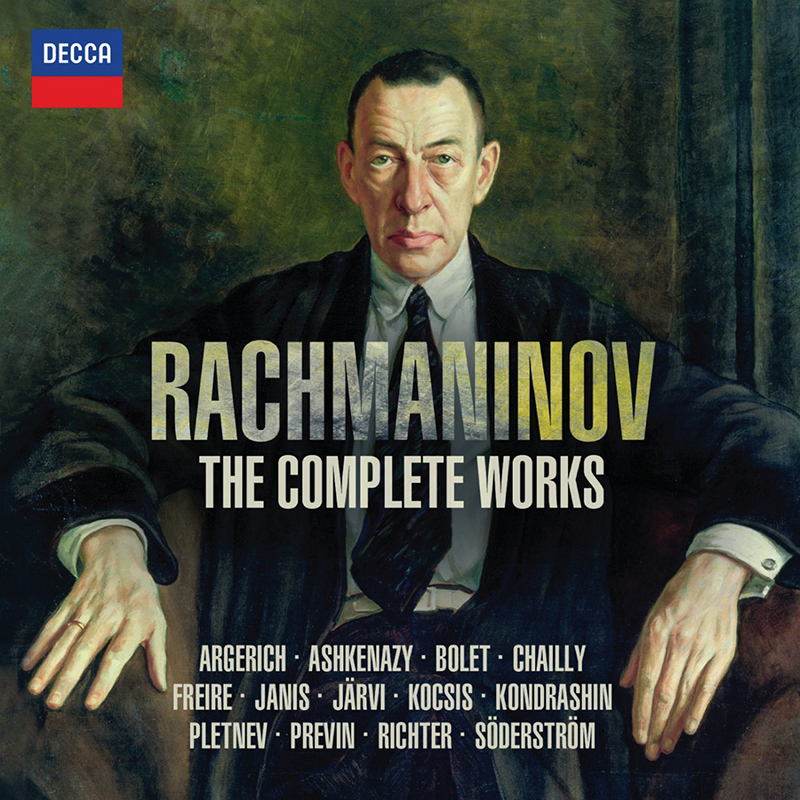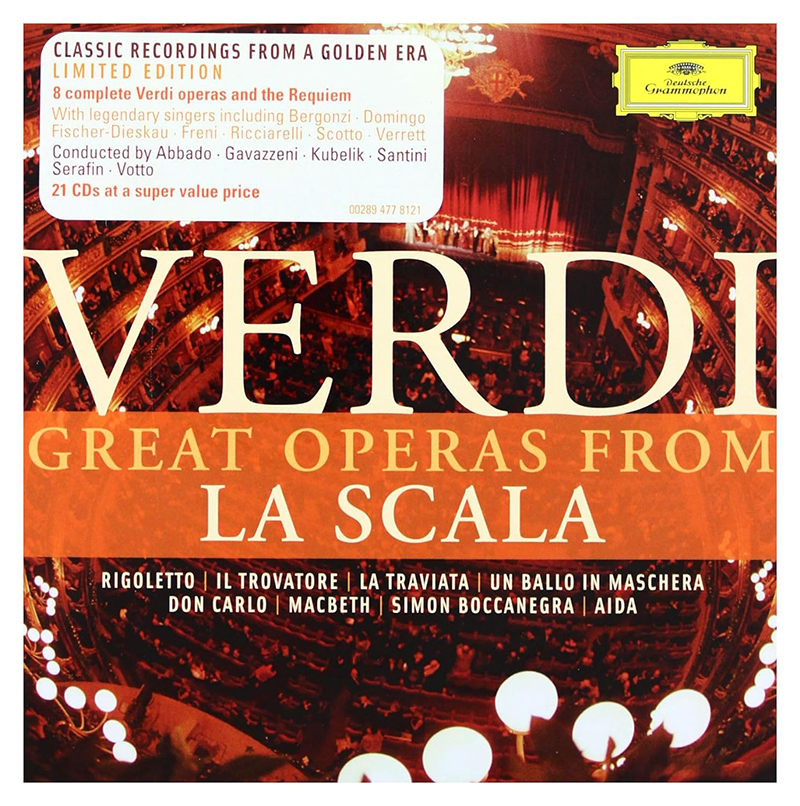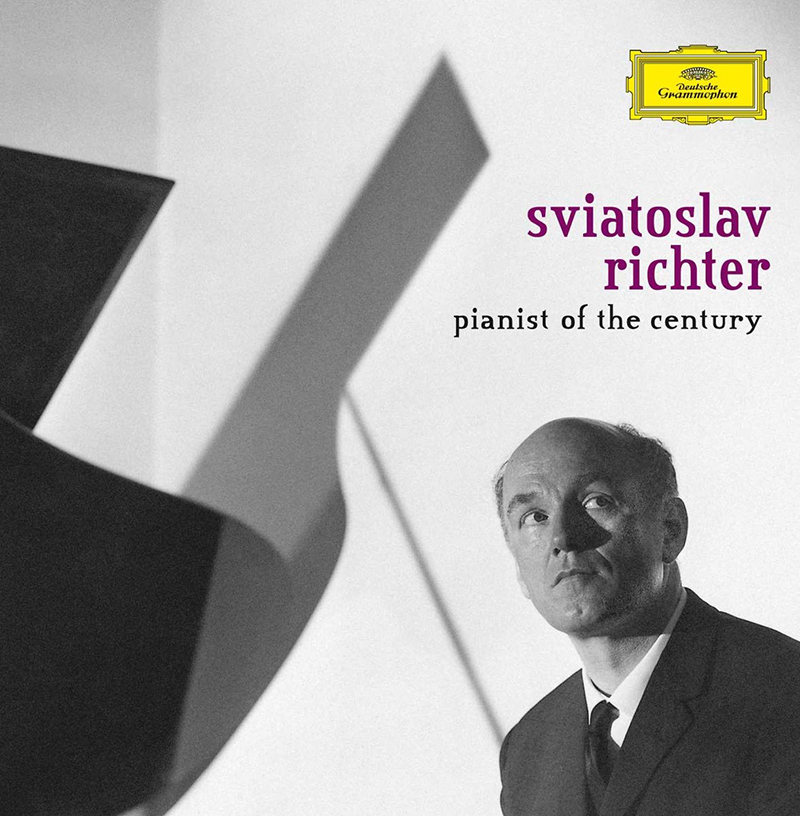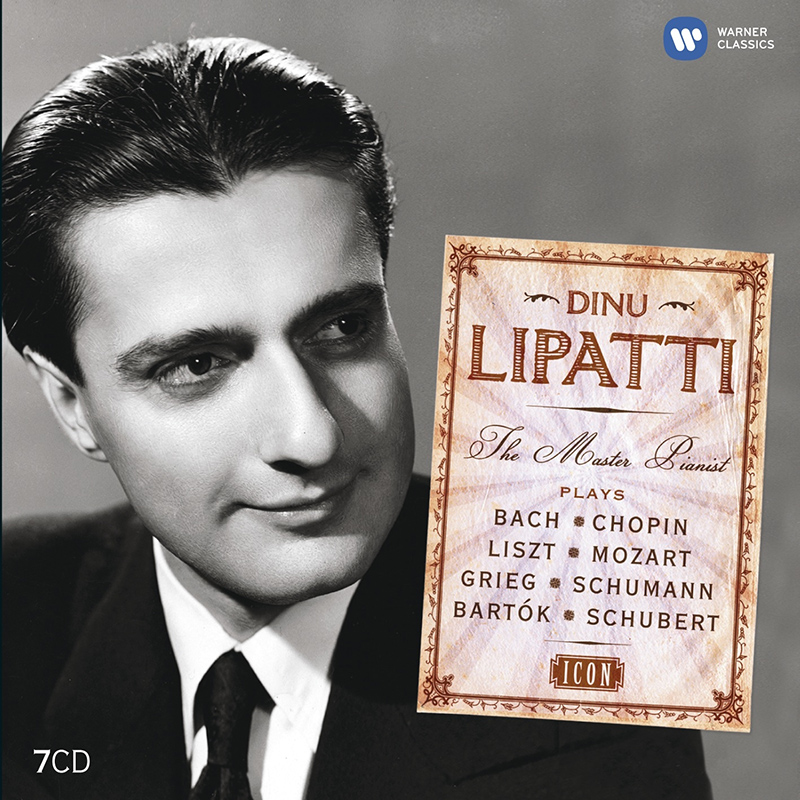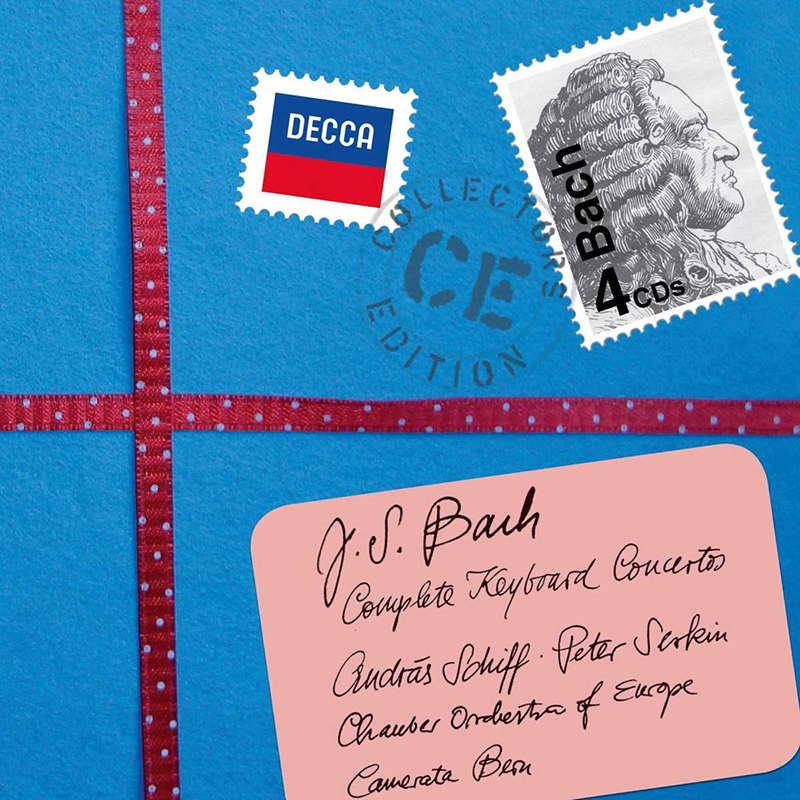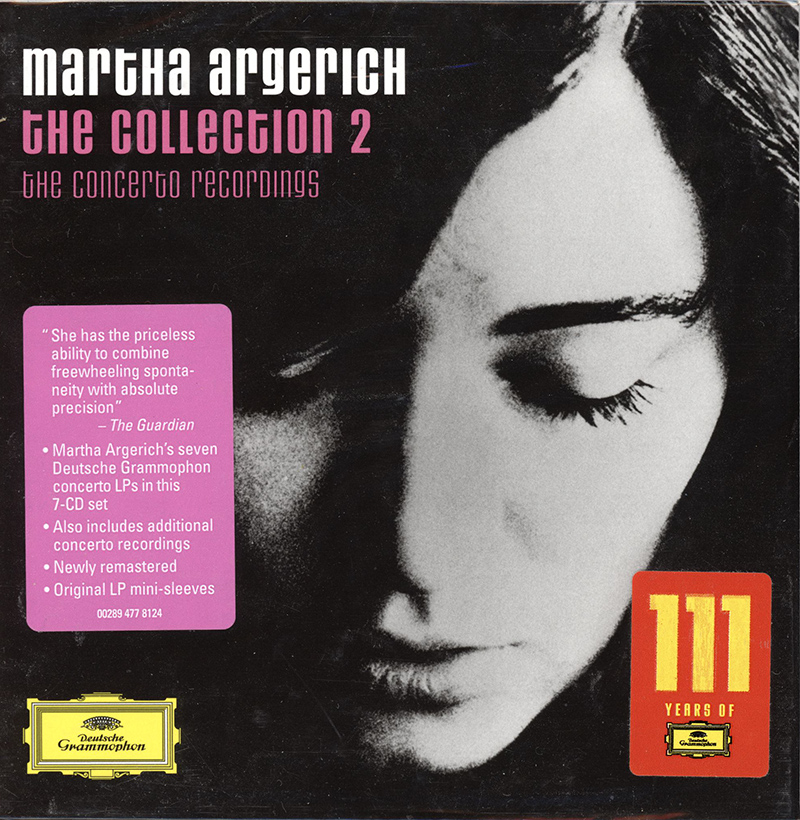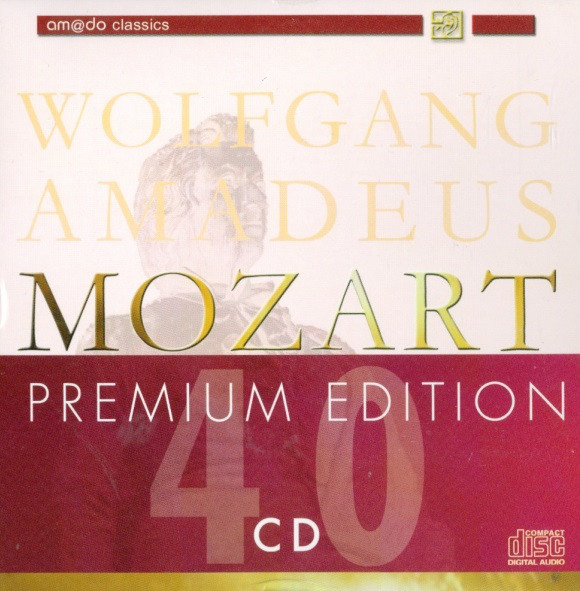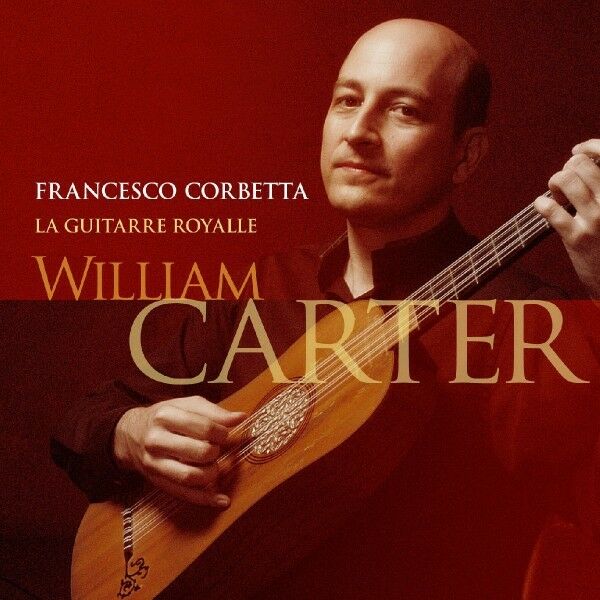Logowanie
KOLEKCJE!
BACH, CHOPIN, LISZT, MOZART, GRIEG, Dinu Lipatti, Otto Ackermann, Ernest Ansermet
The Master Pianist
PROKOFIEV, CHOPIN, TCHAIKOVSKY, SCHUMANN, BEETHOVEN, Martha Argerich, Claudio Abbado, Giuseppe Sinopoli
The Concerto Recordings
The Collection 2
Jakość LABORATORYJNA!
ORFF, Gundula Janowitz, Gerhard Stolze, Dietrich-Fischer Dieskau, Deutsche Oper Berlin, Eugen Jochum
Carmina Burana
ESOTERIC - NUMER JEDEN W ŚWIECIE AUDIOFILII I MELOMANÓW - SACD HYBR
Winylowy niezbędnik
ClearAudio
Essence MC
kumulacja zoptymalizowana: najlepsze z najważniejszych i najważniejsze z najlepszych cech przetworników Clearaudio
Direct-To-Disc
PIAZZOLLA, ChamberJam Europe
Tangos del Ángel y del Diablo
Direct-to-Disc ( D2D ) - Numbered Limited Edition
CORBETTA, William Carter
La Guitarre Royalle
- Corbetta, F - La Guitarre Royalle - William Carter
- 01. Pieces in C - 1 Chaconne (10:15)
- 02. 2 Menuet (1:32)
- 03. 3 Autre Chaconne (2:01)
- 04. 4 Prelude (3:05)
- 05. 5 Folie (4:03)
- 06. 6 Sarabande (2:58)
- 07. Suite in g - 1 Prelude (1:06)
- 08. 2 Allemande (3:53)
- 09. 3 Courante (1:39)
- 10. 4 Sarabande (1:58)
- 11. 5 Gigue (2:18)
- 12. 6 Passacaille (3:02)
- 13. Pieces in D - 1 Gigue a la maniere Anglois (1:53)
- 14. 2 Menuet (0:59)
- 15. 3 Chaconne (2:49)
- 16. Suite in a - 1 Prelude (0:50)
- 17. 2 Allemande (4:35)
- 18. 3 Courante (2:04)
- 19. 4 Sarabande - La Victoire (2:30)
- 20. 5 Passacaille (2:25)
- 21. 6 Folie in g (2:47)
- 22. 7 Las Vacas Espagnole (1:54)
- 23. Suite in G - 1 Prelude (0:45)
- 24. 2 Allemande (2:23)
- 25. 3 Courante (1:50)
- 26. 4 Sarabande (2:19)
- 27. 5 Passacaille (2:23)
- 28. 6 Passacaille en Rondeau (3:11)
- William Carter - guitar
- CORBETTA
William Carter is one of the founding members of the Palladian Ensemble, with whom he has
toured and recorded extensively and appeared in most of the major music festivals in Europe and abroad.
Mr. Carter presently makes his home in London where he often appears as a guest artist with distinguished chamber ensembles such as London Baroque, Fretwork and The Locke Consort. He is also the Principal Lutenist of both The Academy of Ancient Music and The English Concert. Mr. Carter is currently Professor of Lute and Baroque Studies at The Guildhall School of Music and Drama and is also a regular faculty member of the Annual Summer Academy of Baroque Music held at the Royal Wilanow Palace in Warsaw.
This is his first solo recording.
Francesco Corbetta (c. 1615 - 1681) was considered by his contemporaries to be the greatest guitar virtuoso of his time. He taught the guitar to Louis XIV, (and also danced with him). Corbetta also lived in London for a few years as part of King Charles II "Private Music", playing and teaching the royal brothers as well as other members of the nobility. The works on this recording are from Corbetta's books La guitarre royalle, and are firmly in the French style – the result of his residence in France and at the French-influenced English court of Charles II.
"...delicate and virtuosic playing." (Linn CKD 164 - The New Irish Girl) THE CONSORT
----------------
Louis XIV was not one to deny himself life's little luxuries. After a hard day as absolute monarch he liked nothing better than to relax to the strains of the guitar every night. (except on Saturdays, for some reason). William Carter thinks we deserved to be pampered too. He has put together an imaginary private concert for us - the sort of thing Louis might have enjoyed at Versailles during the 1670s if his old friend Francesco Corbetta had popped in to give the resident French guitarist the night off. Corbetta's music seems peculiarly well suited to the night. As Carter says, 'although it's exceptionally demanding, it is rarely showy for its own sake and almost never ends with a bang'.
So who was this Francesco Corbetta? italian born (c1615), he toured Europe on a wave of popular enthusiasm for the guitar which lasted a century and cut boldly across class barriers. Corbetta was the guitar virtuoso par excellence and ended his career in the personal service of Charles II and Louis XIV. the music on this recording is mostly drawn from the earlier of Corbetta's two late collections, both entitled 'La Guitarre Royalle'. The first book dates from 1671 and was dedicated to Charles II; the second followed three years later and was offered to Louis XIV. Together they present the high point of Baroque guitar music in the French manner, matching the sophistication and expressiveness of the finest solo lute, harpsichord and viol music of the era. This is the first recording I have come across devoted to Corbetta played on an appropriate Baroque-style instrument. With astonishingly natural sound from Linn, this is that rare and perfect thing: a pioneering recording where the historical interest is fully matched by the quality of the music and performance.
The sound-world here is mellow and intimate; maybe it's the season, but the sound of Carter's Baroque guitar seems to conjure up autumnal colours...golds, burnt orange, reds and ochre. I've never listened to a Baroque guitar so intently before and I very much like what I hear. To my twenty first-century ears there's a heady mix of refined lute-like textures and the strumming sounds we associate with the instrument today. Carter explains in his engaging booklet notes that only on properly made baroque guitars (still a comparative rarity) is it really possible to integrate the plucking and the strumming - something he does with extraordinary finesse. the opening Chaconne provides a ravishing stylistic conspectus, not least Corbetta's penchant for piquant chromaticism and unresolved dissonances (apparently also favoured by Louis XIV).
This is Carter's first solo recording; he's more usually to be heard as part of the continuo team underpinning the Palladian Ensemble (who also record for Linn). I'm glad he's put his head above the parapet in such a good cause and to such excellent ends. This is an enchanting listen - I for one am planning to follow firmly in Louis XIV's footsteps and enjoy a suite or two before bed. A slap on the back for William Carter for escaping the continuo line and asserting his considerable artistic personality. This is one of 2004's real gems.
---------------------------
Interpretations of spicy and delicate music that prove delectable
What most strikes you about this solo début from the Palladian Ensemble's William Carter is the sheer force of his musical imagination, evinced by a generous tonal palette that brings out not only the spicy, distinctive qualities of Francesco Corbetta's music but also the intimate physicality of playing a Baroque guitar - even more so than Jacob Lindberg's fine playing does on his series of BIS recordings. Fingertip, nail-back and thumb-flesh coax and goad the strings into cascades of campanile and rasgueado effects as well as polyphonic passages of exquisite delicacy.
And although built around the 'conceit', as Carter puts it, of Corbetta's lulling his erstwhile student Louis XIV to sleep, this recital is anything but soporific or formless: order is imposed on the groups of miniatures and suites of dances by moving them gracefully through logical key centres, the first group of pieces and the last suite embracing the whole recital in a restful 'Amen' cadence; recurring variation forms like the chaconne and passacaille add further coherence to the overall design.
This is a wonderful disc, impeccably recorded, and sure to become a most agreeable bedtime companion for many. Listen out for Carter's own prelude to the La Folia variations - it's a real flamenco-inspired tour de force.
William Yeoman - The Gramophone - December 2004
Goldberg![]()
Five star review! (Spanish)
more >>
Fanfare
The playing is faultless
more >>
Classical Guitar Magazine
a creative approach to this repertoire
more >>
BBC Music
his laid-back style is at one with the idiom
more >>
Classic FM![]()
Perfect late-evening listening
more >>
Gramophone
Interpretations of spicy and delicate music that prove delectable
more >>
International Record Review
This is one of 2004's real gems
more >>
The Observer
a first solo disc with as much appeal for fans of Eric Clapton as those of John Williams
more >>
